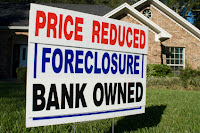Thank You Channel 10 News For Continued Coverage. FAIR is commited To Bringing Balanced Reform For Florida Home Owners. For Information On Joining The Class Action Please Click On the Citizens Class Action LawSuit Button At The Top Of The Screen.
E Loans Mortgage In Hernando County Florida, and Steve Fingerman will continue to fight for Florida Home Owners To Keep Home Ownership In Florida, I Proud To Be A Part Of This Action And Committed To Keeping Home Ownership In Hernando County and The Surrounding Tampa Bay Area Affordable.
Please Subscribe To The Right And Forward This Site To Your Friends Using The Buttons Below.
The 10 News Investigators have learned the group suing Citizens Insurance over its insurance practices will file more lawsuits Monday.
We’ve learned that group — FAIR — will be filing class-action lawsuits against private insurance companies Monday.
Those suits will go along with the cases they’ve already begun against Citizens.
The 10 News Investigators have been leading the way on this. Following reports by 10 News last fall, allegations surfaced.
The claims: insurance companies statewide are setting the replacement costs of some homes extraordinarily high — much higher than they should be.
That means the companies can charge you more to insure your house. The technique lets them make more money and dodge state laws that limit how much they can raise your rates.
That practice is what led the group FAIR — Florida Association for Insurance Reform — to the steps of the state Capitol last week.
FAIR announced it’s suing Citizens Insurance over the issue. Citizens is run by the state and backed up by Florida taxpayers.
PREVIOUS COVERAGE:











